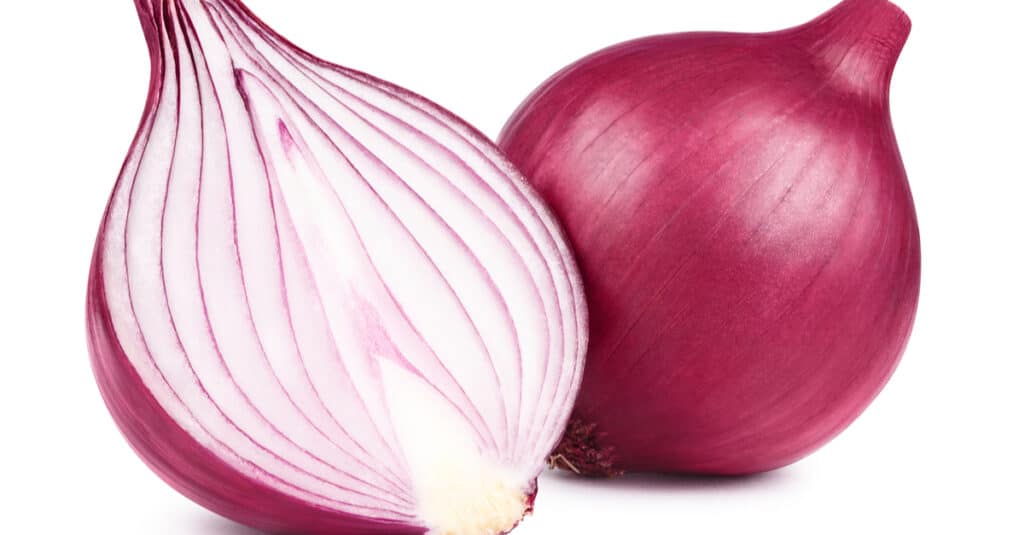Dogs come in a wide variety of shapes and sizes. From the tiny teacup poodle to the massive great Dane, they’re globally beloved by humans. In fact, dogs wouldn’t even exist if it weren’t for their selective breeding and domestication by humans over the past millennia. Though no one can be sure when dogs first made their way into our homes (and our hearts), one thing is for sure: there are some things dogs just shouldn’t eat. But can dogs eat lemons? Or should these bright yellow fruits be on the “no-no” list for our furry companions?
Let’s take a look at what science says when it comes to dogs eating lemons and what you should do if your dog downs this, or any other questionable, food.
What Happens if a Dog Eats Lemons?

Roschetzky Photography/Shutterstock.com
Known scientifically as Canis familiaris, dogs serve as our companions, hunting aids, and livestock guards and herders. Most people would never think to feed their dog a lemon. But dogs, especially when young, tend to get into just about everything. When it comes to feeding your new puppy, or the dog you’ve had for years, just about everyone wants to know what the best dog food options are.
So, what actually happens if your dog eats a lemon? Well, lemons aren’t good for dogs or for their digestion, so you’ll likely notice some gastrointestinal distress. You may also notice vomiting. However, you should always consult your veterinarian if your dog eats something you’re not sure about. Or if they develop severe symptoms like intense vomiting or diarrhea.
Are There Any Fruits That Dogs Can’t Eat?
Unlike cats, which are obligate carnivores, dogs are omnivores. This means they need a combination of meat and vegetable to stay healthy, but can dogs eat lemons or other fruits? You should always consult a veterinarian for dietary questions, but generally, you shouldn’t feed your dog citrus fruits like lemons, limes, oranges, etc. Non-citrus fruits, like apples, blueberries, and bananas, are generally considered healthy in moderation.
Can a Dog Lick a Lemon?

220 Selfmade studio/Shutterstock.com
In the digital age, it’s become common to have someone (a dog, a baby, etc.) lick a lemon for the first time and film their reaction. But should you let your dog lick a lemon? The best practice is always to avoid things that might upset your dog’s stomach, especially if you’re only having them lick the lemon for entertainment value. But, chances are very good that a single lick of lemon won’t hurt your dog — it might just make them make a funny face.
Should You Feed Your Dog Lemons?
So, can dogs eat lemons? Well, dogs can technically eat anything they can chew up and swallow, but that doesn’t mean they should eat everything. Lemons, like other citrus fruits, are not a good option for dogs. They’re highly acidic, something our canine companion’s stomachs are not designed to handle. So, instead of handing your dog a lemon, maybe try a specially formulated dog treat, or an apple, instead.
Do Dogs Like Lemons?
All dogs are different, and you never know what they’ll like until they try it. But, most do not like the sour taste of lemons. Lemons, and other citrus fruits, are very strong in flavor—but not in the way that dogs typically like. Unless you have a mischievous puppy, it’s unlikely that your dog will seek out a lemon to snack on. In contrast, most dogs are happy to munch on an apple slice, or a piece of banana, instead.
Can Dogs Have Lemon Juice?
Since lemons are mostly juice, it makes sense to ask: can dogs eat lemons, or drink lemon juice? The juice of a lemon is the primary source of its acidity, so it’s not a good option for any dog. Citric acid irritates canine stomach linings and can cause mild symptoms (like diarrhea and vomiting) if ingested. Large amounts of lemon juice can cause severe side effects and may even necessitate a trip to the vet. The same is true of lime juice, which causes many of the same side effects as lemon juice.
What Foods Are Toxic to Dogs?

Yeti studio/Shutterstock.com
We all know and love dogs, but how many of us wonder what foods are safe for dogs? Here, we’ve learned that dogs should not eat lemons — they’re not good for them and offer no nutritional benefits for canines. But you should also avoid feeding your dog things like chocolate, coffee, onions, garlic, spices, junk food, bread, macadamia nuts, grapes, or raisins.
If you’re not sure whether or not a specific food is safe for dogs, you should always ask a veterinary professional first. But, a few basic rules are: stay away from citrus fruits, grapes, raisins, macadamia nuts, and chocolate.
Up Next:
The post Can Dogs Eat Lemons or Not? What Science Says appeared first on AZ Animals.
from Animal News, Facts, Rankings, and More! - AZ Animals https://ift.tt/RXkrpbB